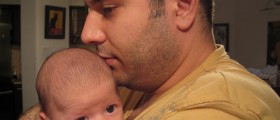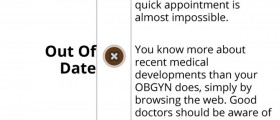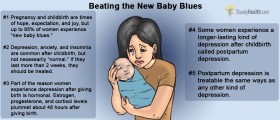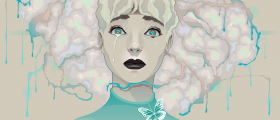Hi girlies, I have a weird story. I was on the pill for 8 years and got pregnant while on the pill, stopped it fine for pregnancy, then when resumed it when I was 2 months post partum, that’s when sh*t hit the fan. I was a basket case, my husband was in the army and had to take emergency leave cause I could not get a grip. My doctors started me on a slew so psych meds over the next 4 years cause they said the birth control could never do this. Well, stopped the psych meds 16 months ago and then I stopped the birth control almost 9 months ago. I probably had a few manageable days on month 5 and things got WAY worse and during ovulation in month 8 I felt a little bit better too but I’m crashing again. I’ve had my hormones tested and know I’m low in progesterone and my once high cortisol is now really low(adrenal fatigue) and I’m just really struggling with anxiety, dpdr, depression, intrusive thoughts and I’m almost 9 months out. I’m starting to lose hope and thing this is just who I am. Can anyone offer some help or encouragement? I can’t handle life like this day in and day out :(
Loading...
Hello, Palominomomma562.
I'm truly sorry to hear that you're going through such a challenging time. It sounds like you've been facing a lot of physical and emotional struggles, and it's completely understandable to feel overwhelmed and seek answers. Here are some things to consider:
-
Hormonal Changes: It's not uncommon for birth control to influence emotional well-being in some women. Stopping birth control can also lead to hormonal changes and fluctuations which may impact mood and other aspects of health. It's essential to remember that every individual reacts differently to hormonal changes, and what one person experiences might differ from another.
-
Postpartum Mental Health: The postpartum period can be challenging, and some women may experience postpartum depression, anxiety, or other mood disorders. It's possible that your initial emotional struggles were related to postpartum changes, compounded by the effects of going back on birth control.
-
Seeking Specialized Care: Consider seeking care from a doctor who specializes in hormonal imbalances, such as a reproductive endocrinologist. They may be able to offer insights into your specific situation and recommend treatments to address hormonal deficiencies or imbalances.
-
Psychiatric Care: It might be beneficial to find a psychiatrist or psychologist who has experience in treating individuals with hormonal imbalances or a history of complex medication interactions. They can provide support and potentially help you find coping strategies that are beneficial for your specific symptoms.
-
Support Groups: Connecting with others who have experienced similar challenges can offer a sense of community and understanding. Online or in-person support groups can provide a platform for sharing experiences, coping strategies, and resources.
-
Self-Care and Lifestyle: While it may be challenging, prioritizing self-care is crucial. Consider incorporating relaxation techniques, such as meditation or deep breathing exercises, into your routine. Activities like gentle exercise or walking might also help in managing symptoms.
-
Seek Encouragement: Remember that your feelings are valid, and seeking help is a sign of strength, not weakness. Your journey is unique, and while the path may be tough now, with the right support and resources, there's potential for improvement.
Remember, you don't have to navigate this challenging period alone; there are many individuals and organizations out there ready to help and support you.
Loading...
















